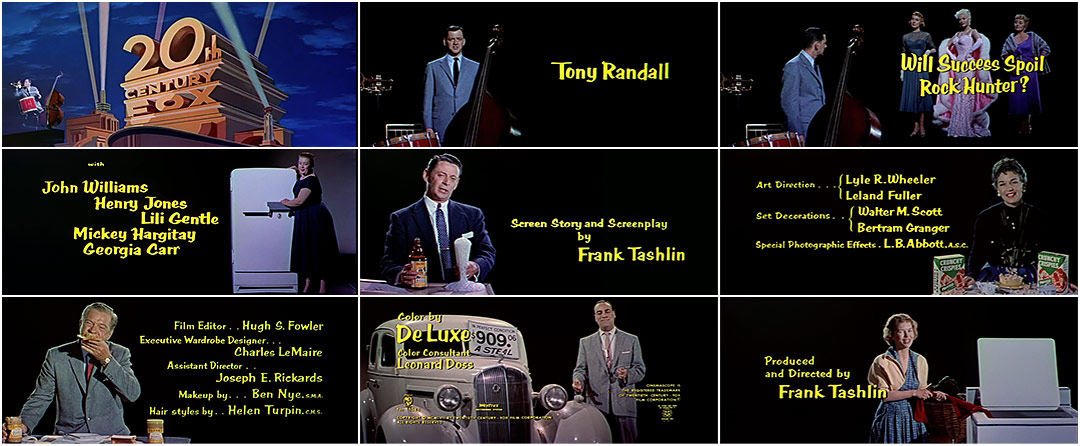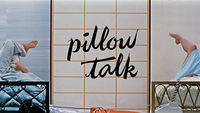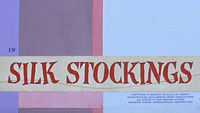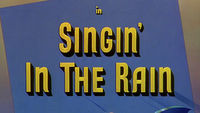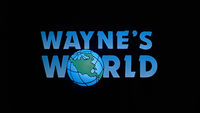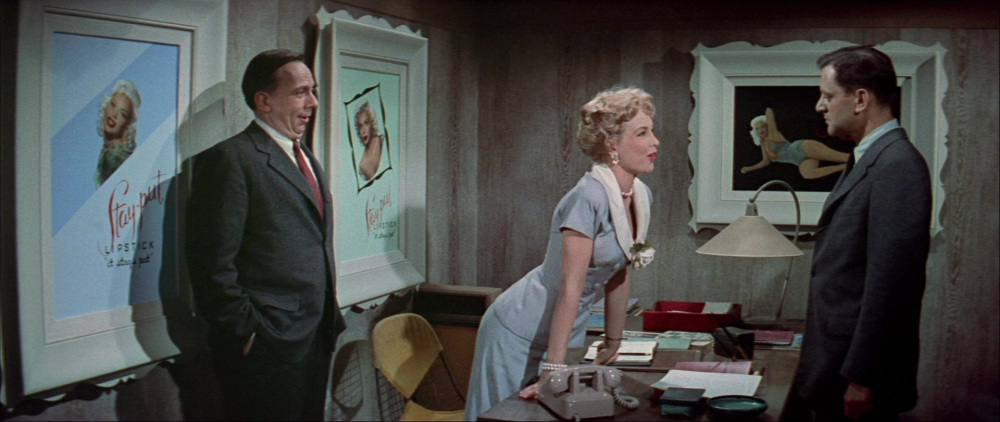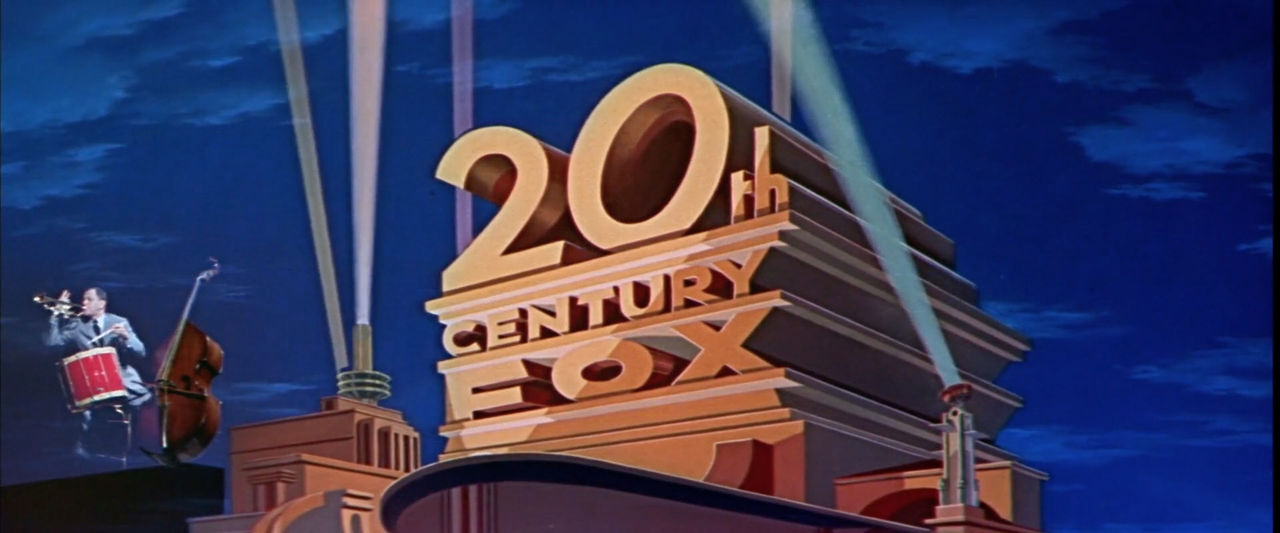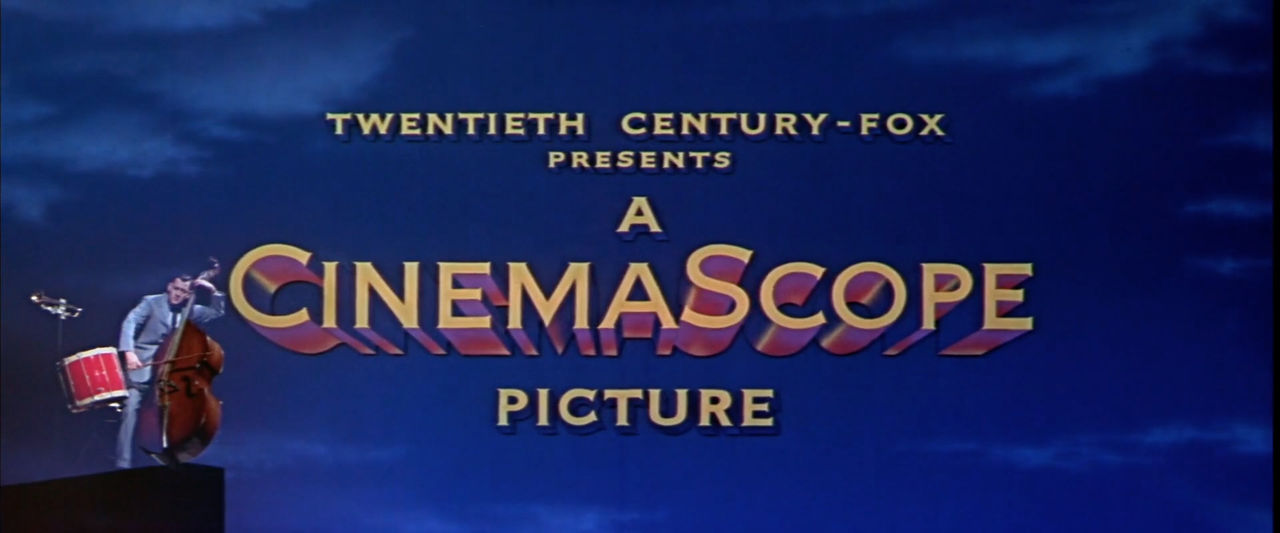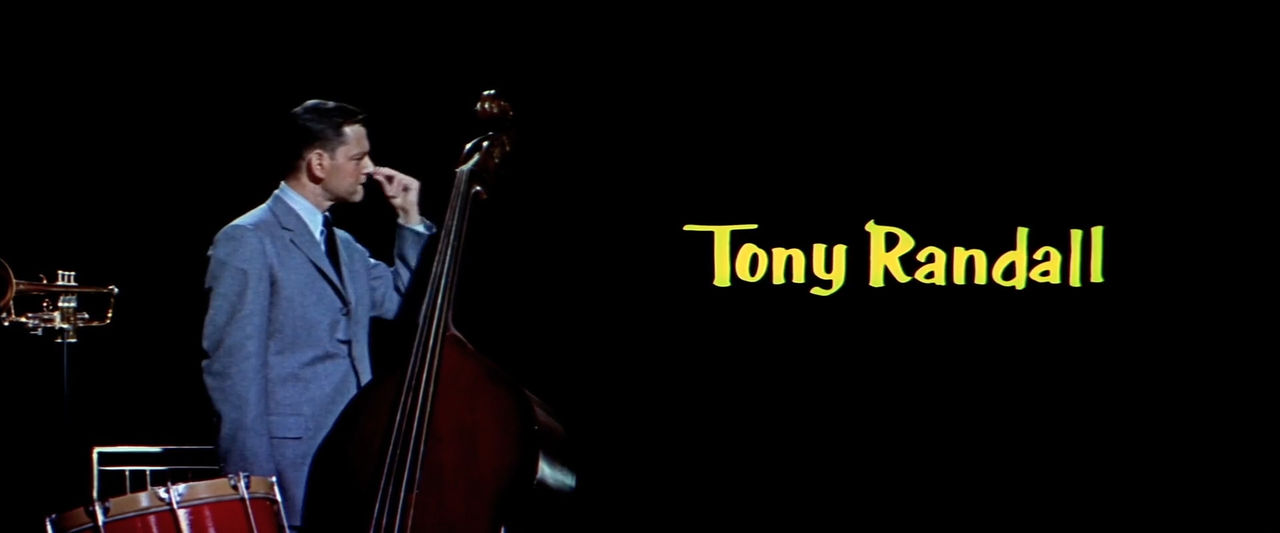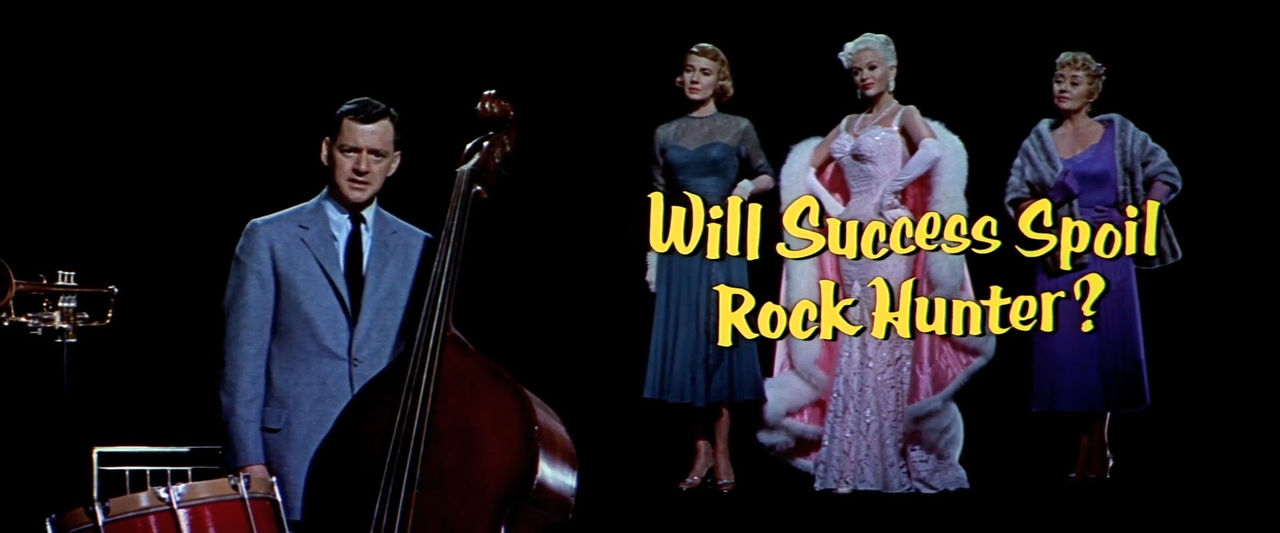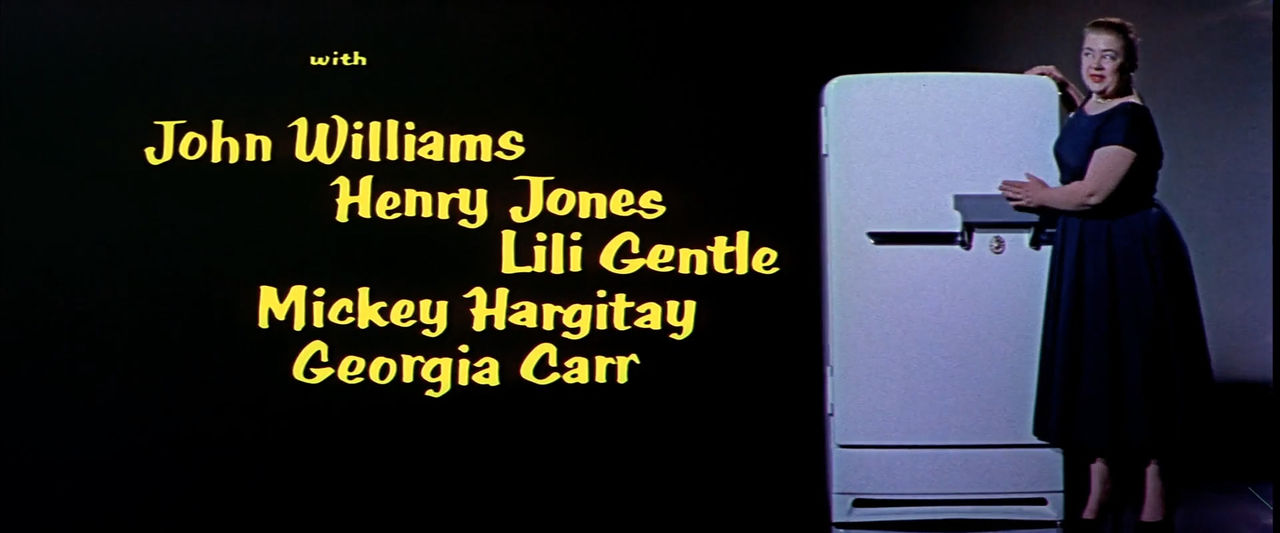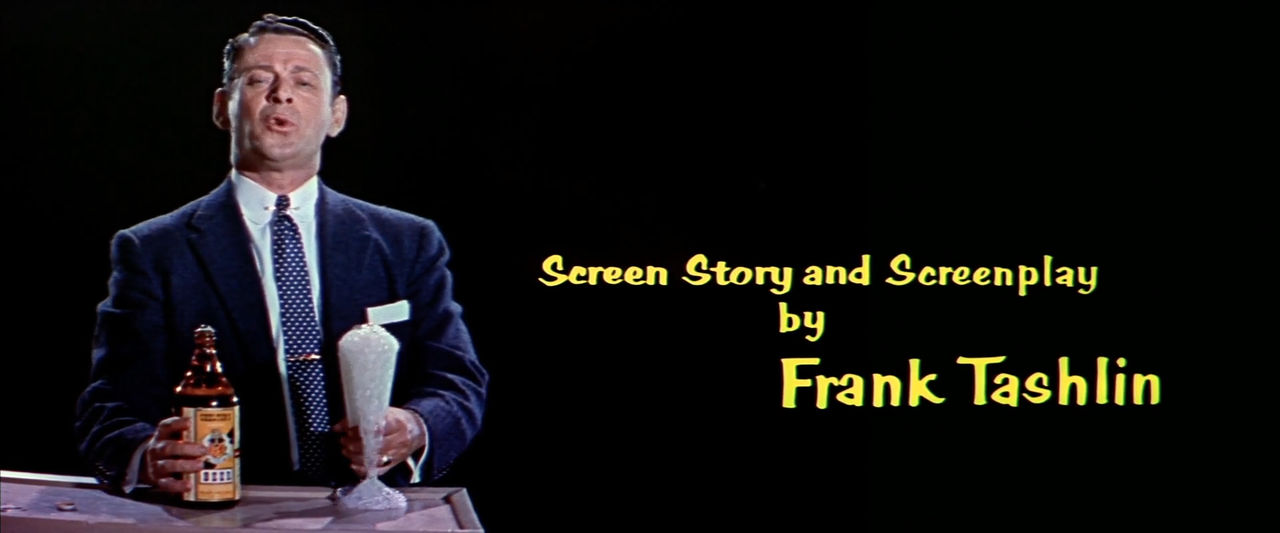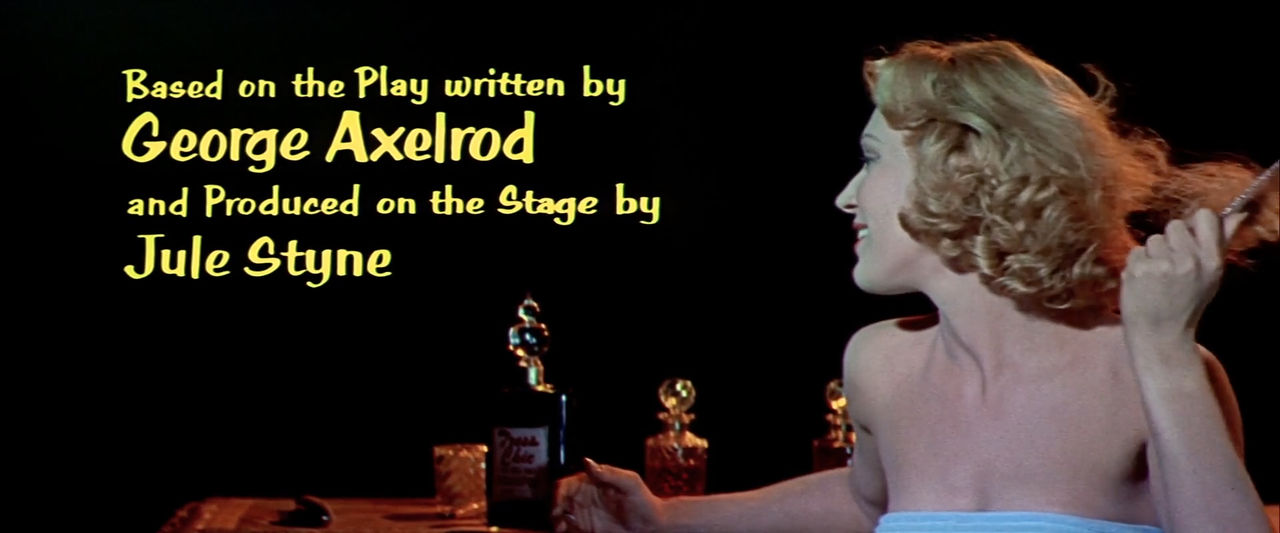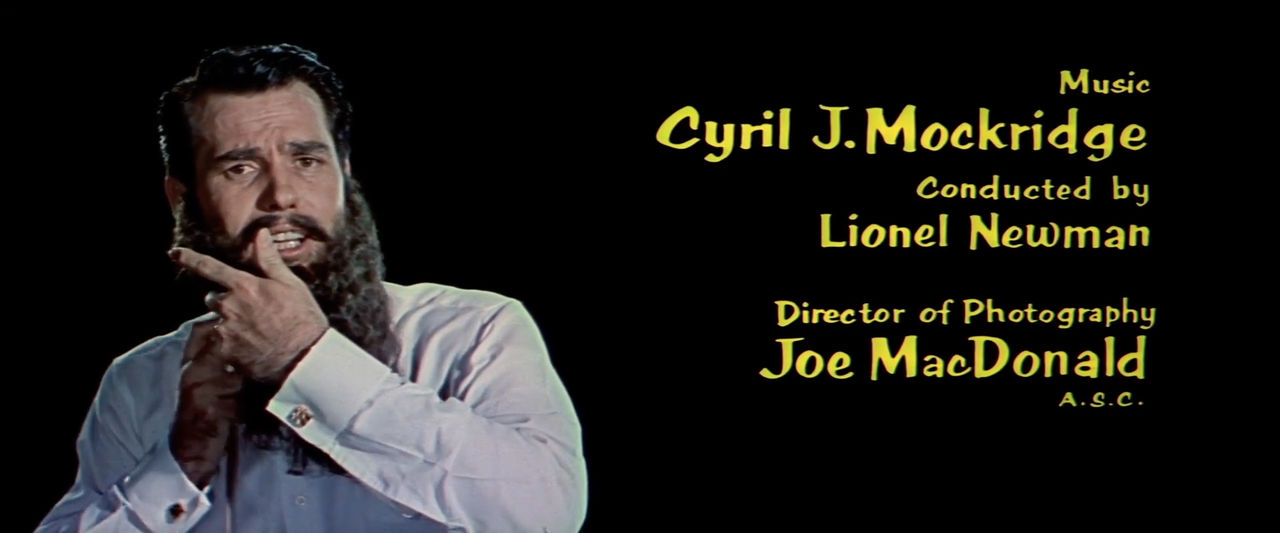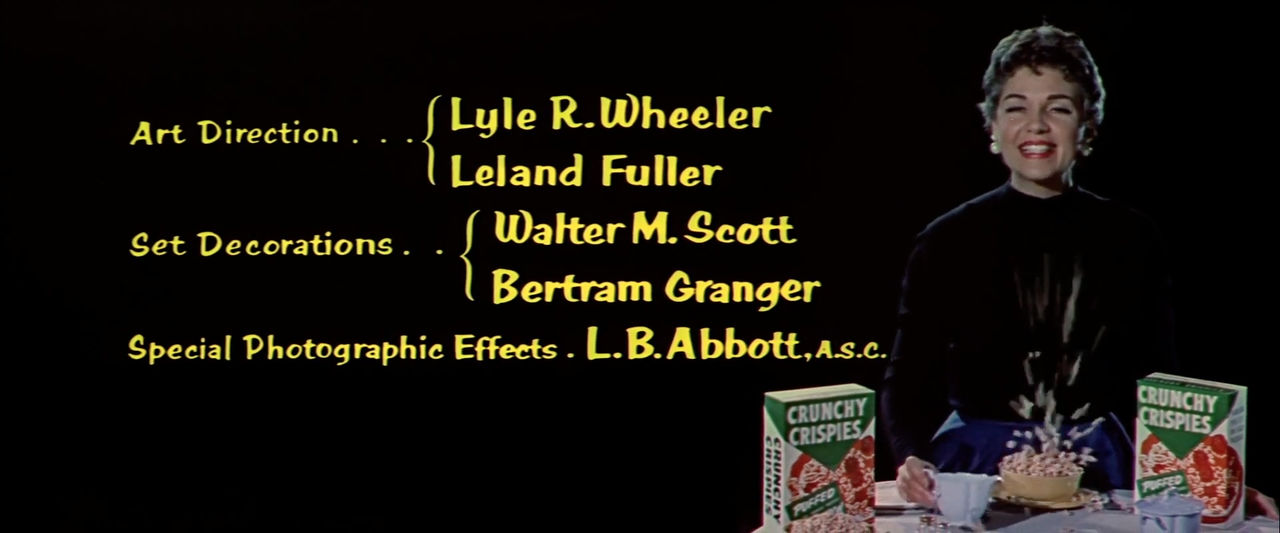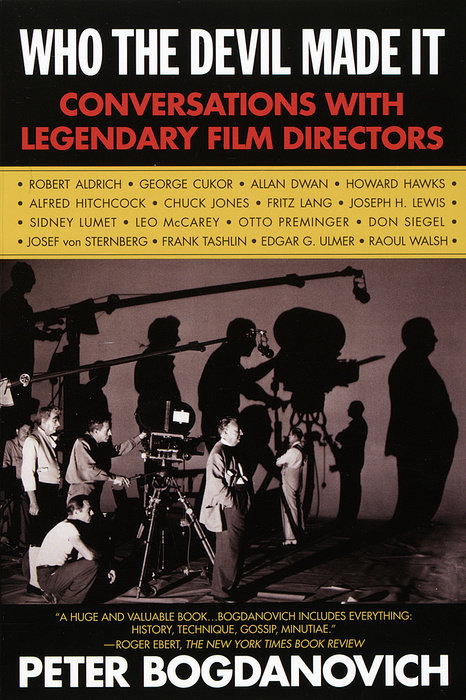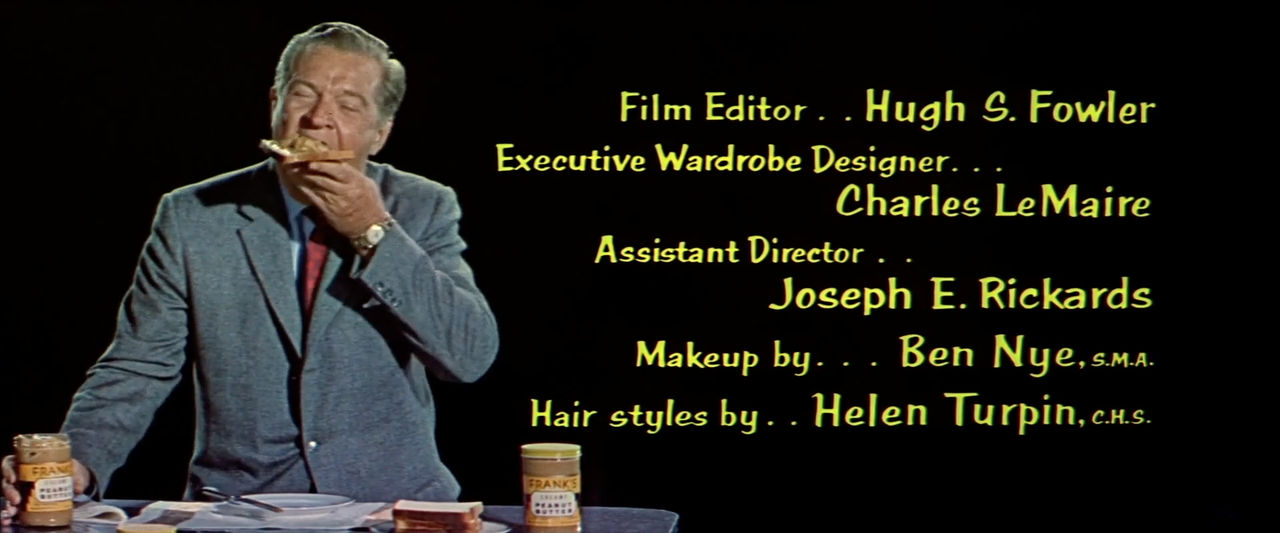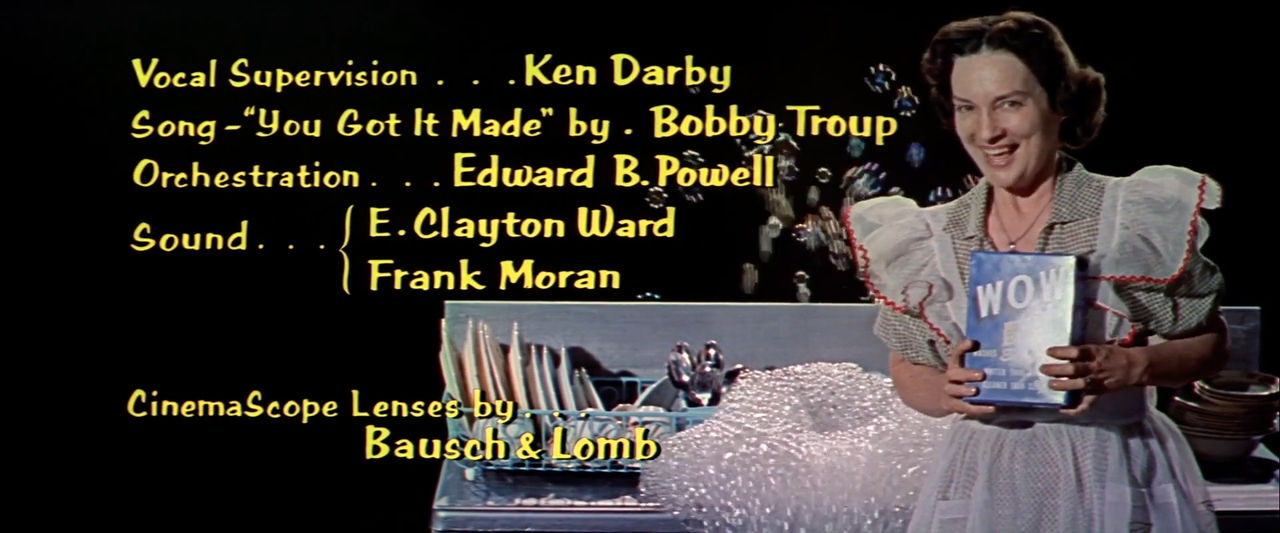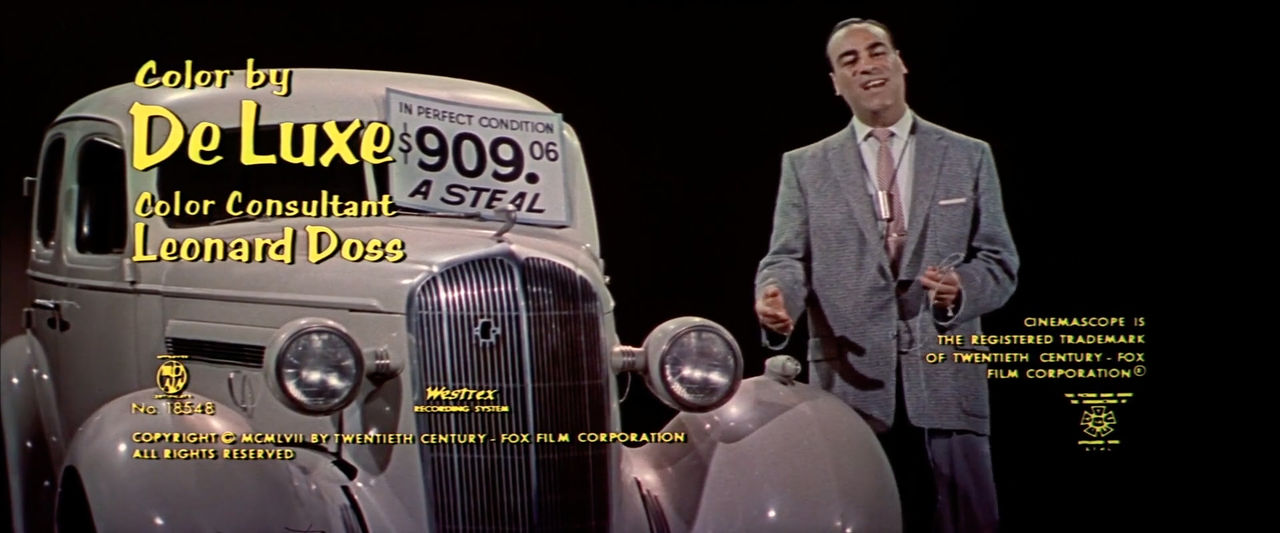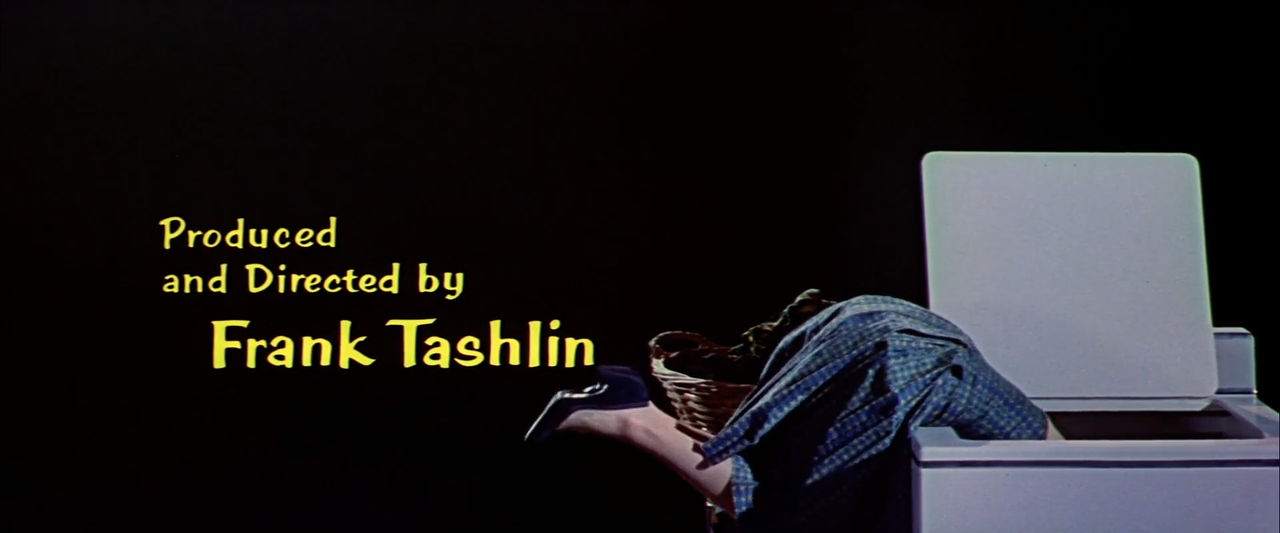"I wanted to make a picture where I got a laugh faster than anyone else – I guess that's where it started,” said director Frank Tashlin, explaining the opening sequence to Will Success Spoil Rock Hudson? to Peter Bogdanovich for Who the Devil Made It: Conversations with Legendary Film Directors, the 1997 book. "Also, I hate credits,” said Tashlin. “Who wants to sit there and read all those names?"
Tashlin, who got his start making Looney Tunes shorts, never wavered from his cartoony comedy roots. His live-action films maintain the breakneck speed and wild exaggerations usually found in animation, shedding a harsh light on the emerging consumerism and throwaway culture. In Rock Hunter, his send-up of the world of advertising and the rat-race of the 1950s, Tashlin created perhaps his most biting satire of what he saw as the "nonsense of civilization." Replicating the overstimulation of a culture that moves toward excessively vulgar images, even before the Twentieth Century logo appears at the beginning of the film, Tashlin's comedy is at work.
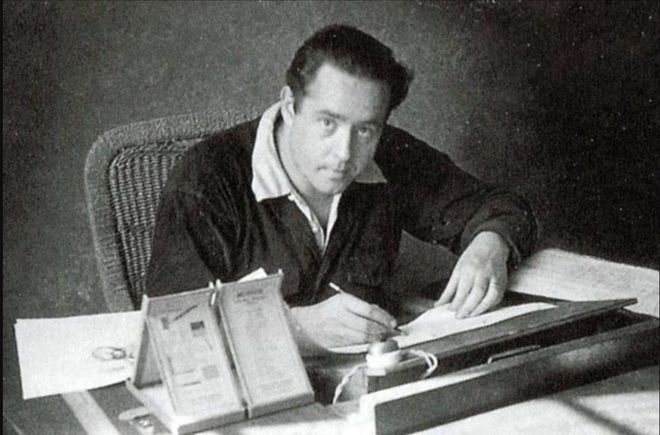
Frank Tashlin (1913–1972) was an American director, writer and animator known for his work on Looney Tunes animated shorts and for his films Artists and Models (1955), The Girl Can't Help It (1956) and Will Success Spoil Rock Hunter? (1957).
Will Success Spoil Rock Hunter? is about an ad-man, Rockwell P. Hunter (Tony Randall), who needs a famous star, Rita Marlowe (Jayne Mansfield doing a thinly-veiled Marilyn Monroe parody), to endorse a lipstick brand. Hunter's obsession with success pulls him into all kinds of strange directions. He yearns for the ultimate privilege: a key to the executive washroom at his swanky Madison Avenue firm.
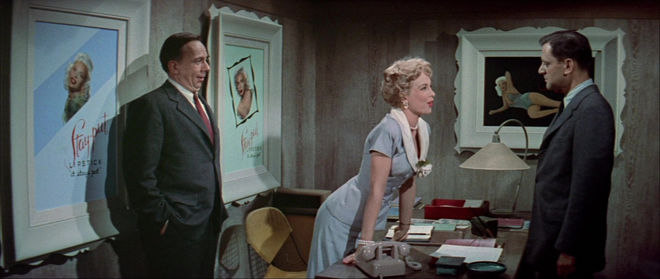
Rock Hunter (Tony Randall, right) needs a famous star to endorse the Stay-Put lipstick brand to achieve his "grey-flannel dreams"
Bright, loud, colourful but also fourth-wall-breaking, ugly and cynical, there's no mistaking Tashlin's ill perception of the universe he portrays.
The film's ironic sense of humour is established in the film's opening credits. As the fanfare of the Twentieth Century logo appears, so does Tony Randall superimposed in the corner. He is playing the iconic score as a kind of twisted one-man-band, struggling to play all the instruments.
The film’s ironic sense of humour is established in the film’s opening credits. As the fanfare of the Twentieth Century logo appears, so does Tony Randall superimposed in the corner.
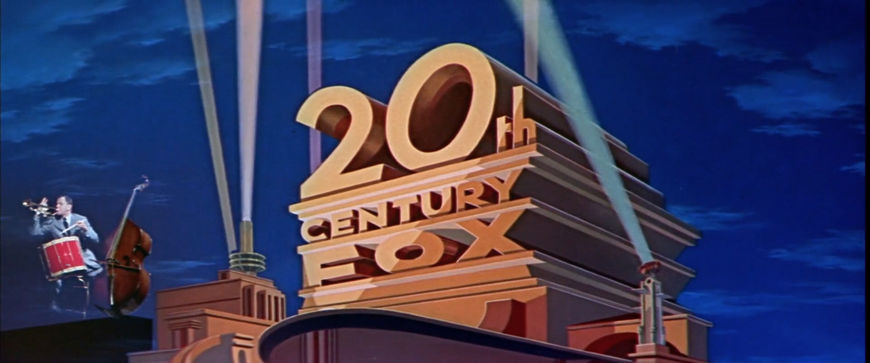
Rock Hunter (Tony Randall) appears in the bottom-left corner as a one-man-band playing the Twentieth Century Fox fanfare
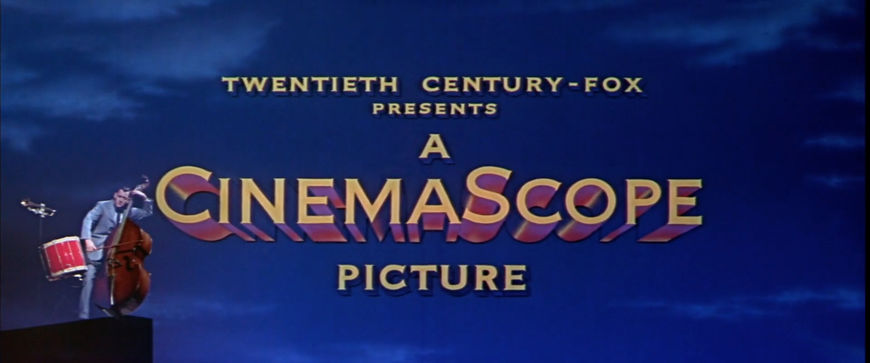
Rock Hunter (Tony Randall) appears in the bottom-left corner during the CinemaScope title card
As the logo disappears, we cut to a shot of Randall finishing up on upright bass, winking at the camera in front of a black backdrop. He is not in character but addresses the audience as Tony Randall, the actor, fulfilling a contractual obligation. Throughout the film, both Randall and Hunter will pause the movie to address us directly; this credit moment foreshadows the film's unusual structure and ironic qualities.
Randall proceeds to attempt to read off the credits and, by snapping his fingers, to make the big yellow bubble text appear with the actor's names.
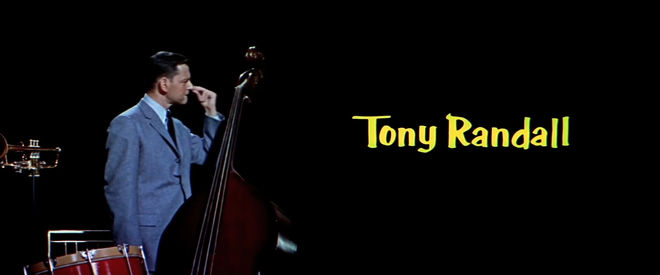
Tony Randall snaps his fingers during the opening to usher in the credits
He rambles and his timing is off as the visual jokes rely on staggered timing to toy with expectations.
When he gets to the title, he can’t quite remember it, so he pulls a piece of paper out of his pocket and reads, The Girl Can't Help It, Tashlin's previous film.
The Girl Can't Help It (1956) main titles
Flustered, he continues to search his pockets as he explains it's a movie about advertising. Randall pulls out another paper; it's a woman’s phone number. He crumbles it and throws it away. "Anyway, the movie is set in New York City, New York…" he buys time as he searches his memory, when with a magical swish on the soundtrack, the film's three women, Jayne Mansfield, Joan Blondell and Betsy Dake, appear like floating angels. With their hands on their hips, in unison, they supply the title of the film: Will Success Spoil Rock Hunter?
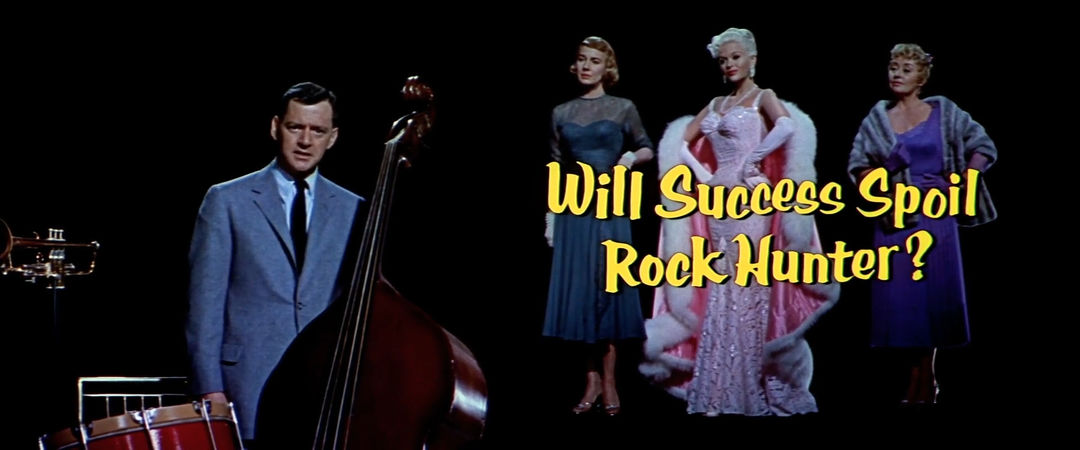
The film’s three women, Jayne Mansfield, Joan Blondell and Betsy Dake, appear like floating angels to supply the title of the film: Will Success Spoil Rock Hunter?
Randall turns to address the audience once again and confidently repeats the title as it appears in yellow bubble text. Randall soon disappears and the rest of the credits unfold over a series of fake advertisements for dysfunctional products: a fridge with a door that won't open, a headless beer that's all head, shampoo that makes your hair fall out, an electric razor that gets lost in your beard, explosive snapping and crackling cereal, glue-like peanut butter, ever-expanding dish soap, a second-hand car that falls apart at a touch, and a woman-eating washing machine.
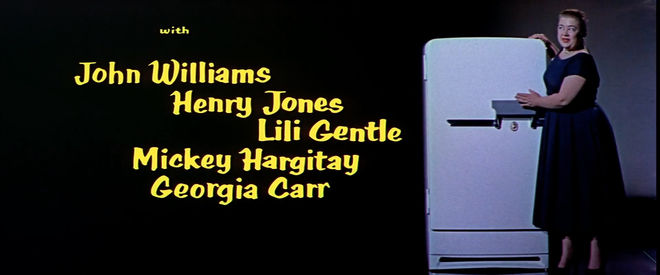
A woman promotes "slip-easy ice trays" for refrigerators which do not in fact slip easy in one of the advertisement spoofs during the opening of Will Success Spoil Rock Hunter?
In just under four minutes and 30 seconds, Tashlin delivers, conservatively, a joke every ten seconds.
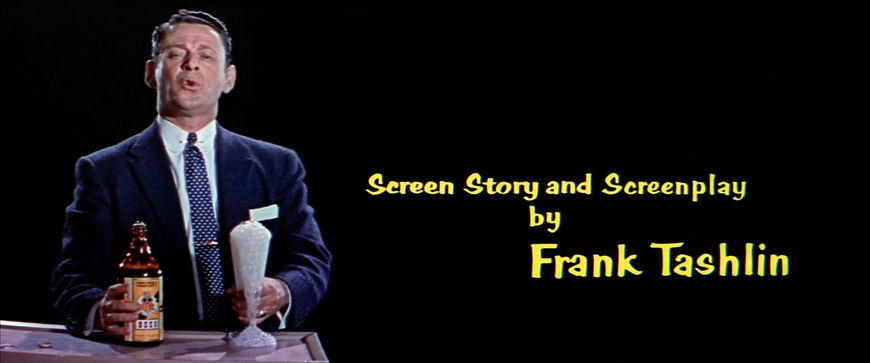
A man promotes a beer with no head which overflows with foam after being poured in one of the advertisement spoofs during the opening of Will Success Spoil Rock Hunter?
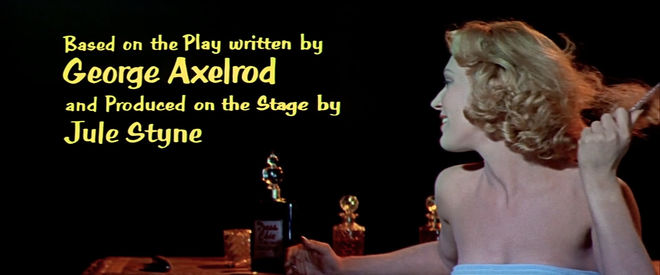
A woman promotes "Tress Chic," a shampoo which causes her hair to come out while brushing in one of the advertisement spoofs during the opening of Will Success Spoil Rock Hunter?
In just under four minutes and 30 seconds, Tashlin delivers, conservatively, a joke every ten seconds.

Cinematographer and special effects expert Lenwood Ballard "Bill" Abbott, A.S.C. (1908 – 1985).
While Tashlin was the brains behind the opening sequence, it was likely created in collaboration with visual effects artist L.B. Abbott, who became the head of Fox’s Special Effects Department in 1957. Best known later in his career for big-budget spectacles like The Poseidon Adventure (1972) and Logan's Run (1976), he also worked as the director of special effects for all Twentieth Century Fox television as of 1953. With a background in cinematography (he began his career as a cameraman and his father Lenwood Abbott was also a director of photography working in silent films), he was able to work in front of and behind the camera. His experience working on television likely also contributed to the true-to-life feel of the film's dysfunctional product montage due to first-hand knowledge.
When Will Success Spoil Rock Hunter? was released in 1957, it arrived as the cinema continued to lose its war against TV. As much as the film lambasts the cynical and throwaway culture of advertising, it is by association laying blame on TV culture for the explosive consumerism that emerged during the 1950s.
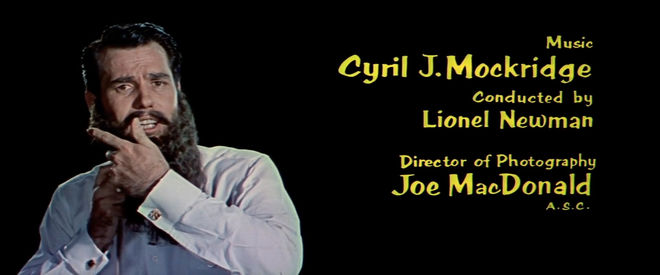
A man demonstrates an electric razor which gets stuck in his beard in one of the advertisement spoofs during the opening of Will Success Spoil Rock Hunter?
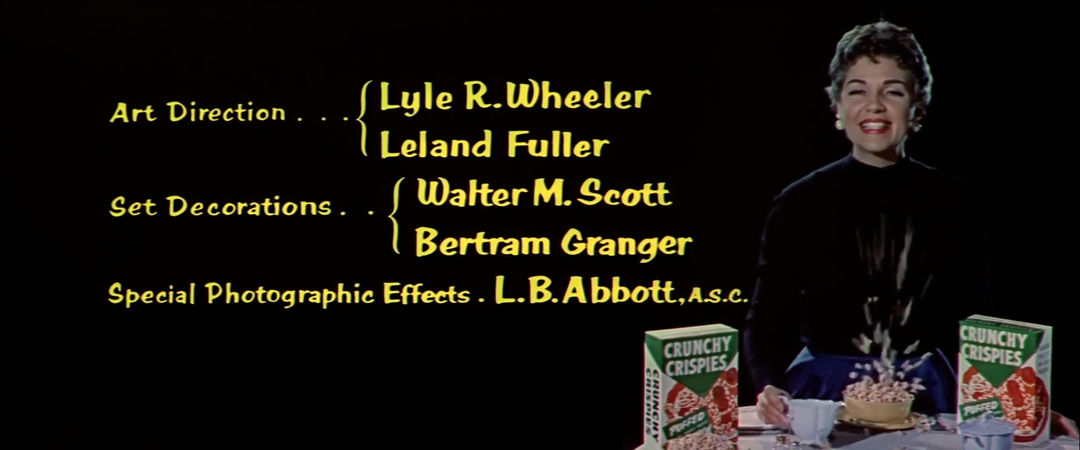
A woman promotes "Crunchy Crispies," an explosive snapping and crackling cereal, in one of the advertisement spoofs in the opening sequence
While shot on wide-screen Cinemascope, the black backdrop of the opening sequence mirrors the more finite qualities of the TV screen that were confined by space and size. The product, be it dishwashing liquid or a performer, takes precedence over the environment and the wider world as an object perfectly packaged to be sold and bought.
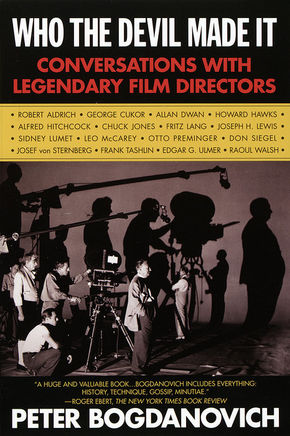
Who the Devil Made It: Coversations with Legendary Film Directors
by Peter Bogdanovich
In Who the Devil Made It Peter Bogdanovich highlights the perceptive venom that Tashlin brought to the screen:
"His best film – significantly, his least compromised – Will Success Spoil Rock Hunter? – is a definitive picture of Madison Avenue vulgarity, but it was usually misunderstood as exploitative rather than sardonic. The scene in which Tony Randall is moved to joyous tears when given the key to the executive washroom is exaggerated so little that it becomes almost terrifying basic truth. This was a large part of Tashlin's particular genius: he was honest, exaggerating only slightly to make a point."
Exaggeration plays a significant role in Tashlin's artistry and is so often tied to his early years as an animator working with Warner Brothers on Looney Tunes. While he was quick to shrug off the cartoon element to his live-action work, there is no denying that Tashlin embraced both the speed and enormity of cartoons in his 1950s satires. He worked with actors like Jerry Lewis, Tony Randall and Jayne Mansfield, who exemplify visually broad stereotypes of American corporate archetypes, while also cutting out all possible fat for lean, mean pacing and rhythm.
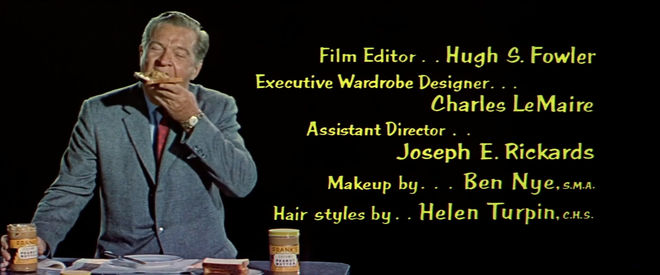
A man promotes "vacuum-packed peanut butter" which, after eating, makes his speech unintelligible in one of the advertisement spoofs during the opening of Will Success Spoil Rock Hunter?
One of the significant ways animated films had a leg up over live-action was the way they could transform reality. Just in the film's title sequence, you see characters navigating a world that exists outside perceived reality (possibly existing within the dark void of a TV set). The characters move and behave under conditions of a heightened state of existence, such as Randall embodying both actor and character. At the same time, other cast members step in as a kind of angelic (or diabolical) chorus.
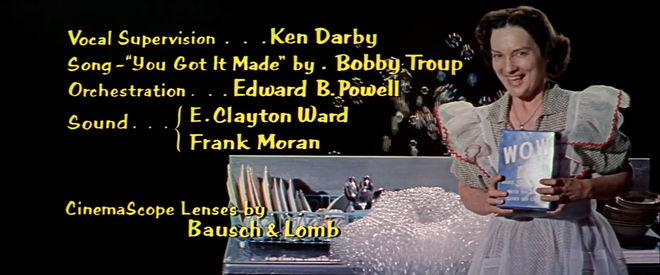
A woman promotes a "gentle" dish soap which bubbles all over the kitchen in one of the advertisement spoofs during the opening of Will Success Spoil Rock Hunter?
Furthermore, in having Tony Randall break the fourth wall, he is replicating the advertising style of the day in which "ordinary" Americans sell products on TV. While the idea, in some capacity, of breaking the fourth wall can be traced back to the Ancient Greeks and to Shakespeare, it was still a relatively novel approach at the time of the film's release. In Hollywood, it was used in comedies featuring Fatty Arbuckle or Chaplin, when a character would look directly into the camera as if to say, "Can you believe this?" Musicals, also existing in a kind of exaggerated reality, also often have characters face the camera. To the degree that the fourth wall is broken in Rock Hunter, a significant antecedent comedically would be the 1941 film Hellzapoppin’ which features characters commenting on the plot, talking to the audience and confronting the projectionist.
The overall effect of Will Success Spoil Rock Hunter? is a kind of chaotic overstimulus. The movie reflects and predicts a world inundated by images and captures the growing consumer culture that has only exploded since the film was first released. This ugly excess is also directly mirrored by Hunter's empty desire to climb to the top. The more he pursues success, the uglier the world becomes, and the further away from beauty he finds himself. The ultimate promise that the right product or promotion will bring you happiness is proven to be empty.
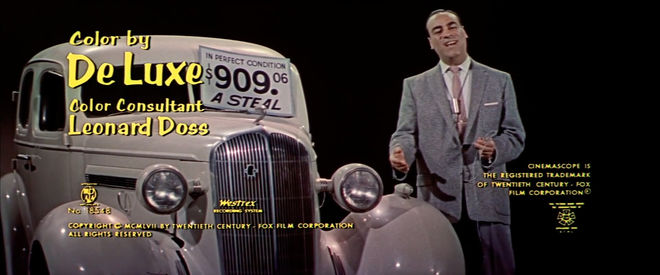
A man opens the door of a car which promptly falls off to promote a car dealership in one of the advertisement spoofs during the opening of Will Success Spoil Rock Hunter?
Tashlin wouldn't be the first filmmaker to tackle the excesses of advertising culture in the American cinema but few handled it with his kinetic flair. Previous films that tackle the advertising world include It Pays to Advertise (1931), The Hucksters (1947), Mr. Blandings Builds His Dream House (1948), It Should Happen to You (1954), It's Always Fair Weather (1955) and The Man in the Gray Flannel Suit (1956). For the most part, these films are less interested in the day-to-day workings of advertising and the products created (i.e. ads). Instead, they use the advertising world as shorthand for a character's success and/or a general backdrop for cynicism, particularly in the post-war period.
Along with Elia Kazan's A Face in the Crowd, also released in 1957, Will Success Spoil Rock Hunter? helped usher in a new wave of films about the advertising world; however, few of those movies would achieve either the success or the biting cynicism of Tashlin’s work. Decades later, movies and shows like Putney Swope (1969), Network (1976) and Mad Men (2007-2015) would continue the conversation set forth by both Tashlin and Kazan's films. The advertising world would be far more than a backdrop for these creators; it becomes the battleground to fight over America's soul.
Will Success Spoil Rock Hunter? (1957) end scene featuring the cast lined up for a fourth-wall breaking audience address and text that reads "The Very Living End"
Perhaps the most obvious descendent of Will Success Spoil Rock Hunter's influence is Penelope Spheeris's Wayne's World, the 1992 comedy about two friends getting swept up into the world of corporate America when a television producer buys the rights to their public access show. Both films share similarly cynical and unbelievable end-texts where characters address the audience with cute summaries of lessons learned. These endings reflect how corporate America and the advertising world twist the truth and trade complexity for marketable, upbeat slogans.
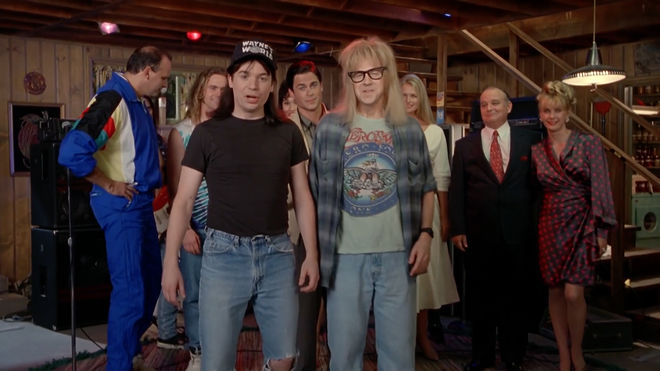
Still from the ending of Wayne's World (1992) in which the cast line up for a fourth-wall breaking audience address
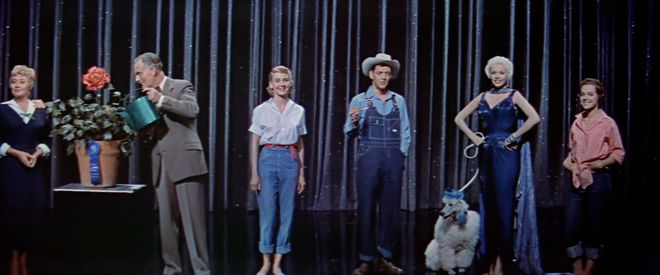
Still from the ending of Will Success Spoil Rock Hunter? in which the cast line up for a fourth-wall breaking audience address
The films also employ many of the same metafictional elements including fourth-wall breaks, celebrity cameos and stories within stories. In a 2007 article for Reverse Shot, critic Michael Joshua Rowin describes Wayne's World as a "postmodern corporate movie product," referencing Tashlin quite extensively. Both films can be understood as working towards "exposing" toxic elements of American consumer culture.
Since the film's release, its influence can be felt on a wide range of comedy filmmakers, especially in the directed works of Jerry Lewis and Mel Brooks. Will Success Spoil Rock Hunter? stands out decades later as a great work of satire that lambasts the growing consumerism culture of the 1950s. To this day, Tashlin’s bouncy and exaggerated vision resonates as an excessive portrait of a specific moment of time but also a forewarning of what was to come.
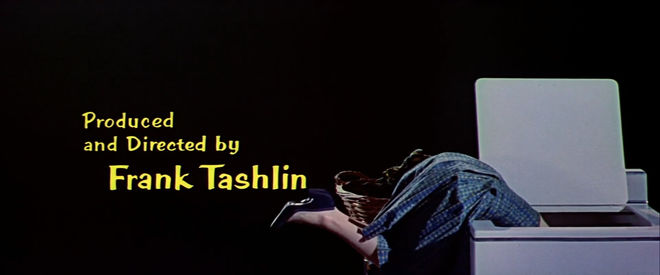
In the last advertisement spoof during the opening of Will Success Spoil Rock Hunter? a woman falls into an "Easy-Clean" washing machine
Director: Frank Tashlin
Cinematography: Joseph MacDonald
Special Photographic Effects: L.B. Abbott
Art Direction by: Leland Fuller, Lyle R. Wheeler
Music: Cyril J. Mockridge
Title Designer: uncredited




